Swedes get better sleep than most other countries — here's 5 of their best hacks
A sleep scientist reveals Swedish secrets to a good night's sleep
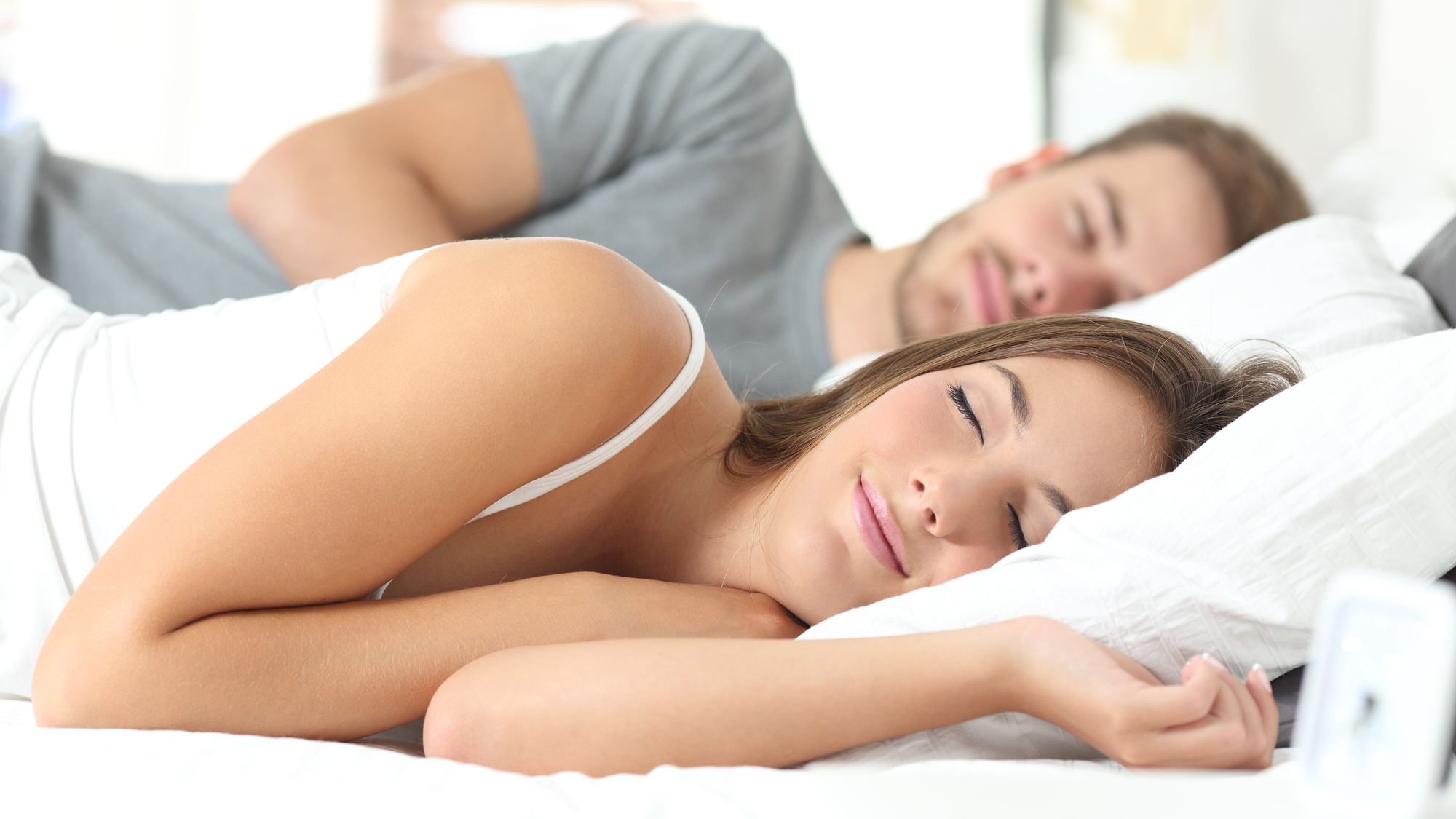
A good night’s sleep is increasingly becoming a luxury in our constantly-switched-on, relentlessly connected modern world. But Swedish people understand the value of rest. They generally sleep for longer and have created popular hacks to improve their slumber, even taking cues from the environment to relax and promote quality sleep.
Sweden is a prime destination for sleep tourism (Visit Sweden have even coined the phrase 'Swede dreams' in a nod to this), with a survey by Mattress Next Day showing Sweden is in the top 5 European countries for a sleep retreat. The Scandinavian sleep method (where couples have a separate duvet in the same bed) has gone viral and Sweden ranks in the top ten countries for sleep quality. Other research shows that more people in Sweden get the recommended 7 hours minimum sleep, or above, than in both the UK and the US.
We asked Christian Benedict, author and sleep researcher at Uppsala University, exactly what makes Sweden such a great location for snoozing and what tips we should take from Swedish super sleepers.
5 sleep tips we can take from Sweden
Time spent outdoors, combined with relaxation, cool temperatures and dark winter nights helps create a nation of strong sleepers in Sweden. If you want to fall asleep fast and sleep through night, here are the leaves you should take out of a Swedish sleeper's book...
1. Spend time in nature
Providing stress relief, a cognitive boost and a chance to incorporate physical movement into your day, spending time outdoors can boost sleep.
Benedict explains: "Spending time in nature could help improve sleep as it often has a calming effect. It's like opening a valve to release built-up pressure — when you feel less stressed, you’re more likely to sleep better."
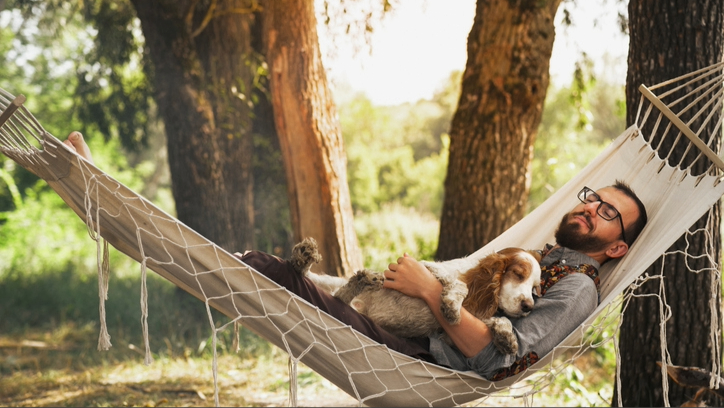
He adds: "Being outdoors also has other sleep benefits. Getting natural daylight helps keep your body’s internal clock on track, including when to sleep. Plus, spending time outside is usually linked to being more physically active, which, if done not too close to bedtime, can promote better sleep."
Sign up to get the BEST of Tom's Guide direct to your inbox.
Get instant access to breaking news, the hottest reviews, great deals and helpful tips.
Granted, there's plenty of accessible nature in Sweden. But if you can sit in the garden for your morning coffee, get outside on your lunch break, or fit an outdoor walk into your daily schedule, you're likely to see improvements in your sleep quality.
2. Embrace dark nights and early mornings
Going to sleep earlier when the nights are long and waking up when the sun rises early in the morning can help your body align with earth's natural rhythms. Our bodies produce the sleepy hormone melatonin in response to darkness, making us feel tired, and cortisol in response to light, making us feel more alert.
As a result, rising bright and early and turning in for bed before it's too late, (aligning more closely with natural cycles of light and darkness), can help you establish a regular sleep-wake cycle.
✅Add a 20 minute outdoor walk to your day
✅Wake up when the sun comes up
✅Turn off the central heating before bedtime
✅Take time to breathe when needed
Living according to Swedish wellness principles can also help you establish a regular sleep-wake cycle and improve your wellbeing.
Gökotta is a Swedish concept that involves waking up at dawn to experience the stillness of the morning and appreciate nature, with a focus on the sound of birdsong.
The idea behind this practice is to reap the benefits of spending time outdoors and in nature, which include improved focus and energy levels, and overall wellbeing. This time to relax in the morning can provide stress relief and enhance your mood, both associated with better sleep. Practicing gökotta can also help align your circadian rhythm, which in turn will help you fall asleep faster and wake up with more energy.
3. Sleep in a cool environment
Temperature is a key factor in our circadian rhythm, as it influences when our bodies feel sleepy and when they feel energized. When we wind down to sleep, our core body temperature naturally drops and at the same time, melatonin (the sleepy hormone) is released.
Ensuring your sleep environment is set at a cooler temperature around bedtime tells your body's internal clock it is time to rest. The perfect temperature for sleeping is between 15 to 19°C (60 to 67° F).
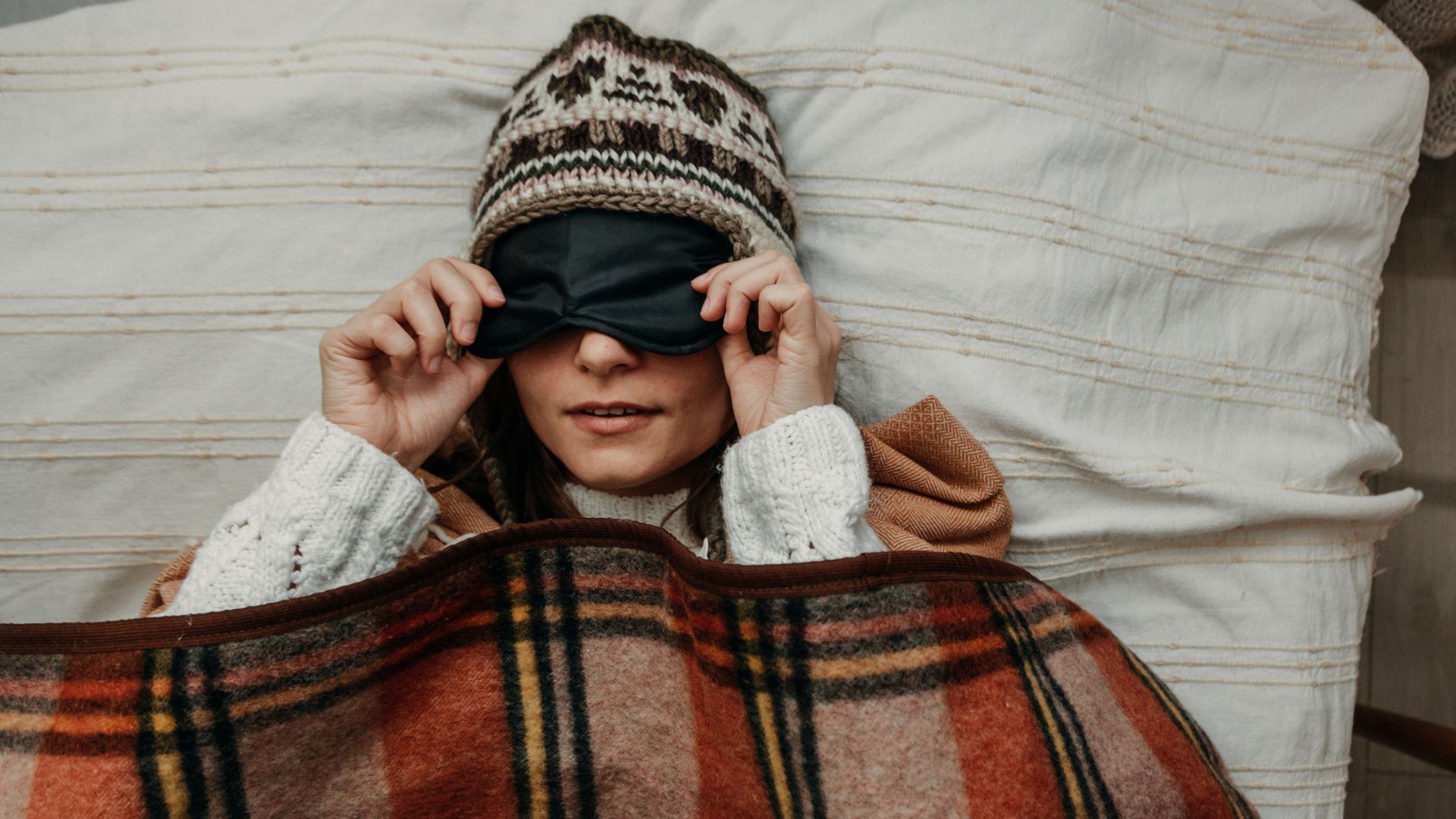
Located in northern Europe, Sweden has cold winters and milder summers to support this sleep hack. But if your environment is prone to warmer nighttime temperatures, consider turning down the thermostat ahead of your bedtime, or knocking off the central heating.
If you sleep particularly hot, one of this year's best cooling mattresses, teamed with breathable bedding, will also help you cool down at night.
4. Prioritize relaxation
Nordic countries, including Sweden, continually rank highly in the World Happiness Report, coming in as among the happiest places to live in around the globe.
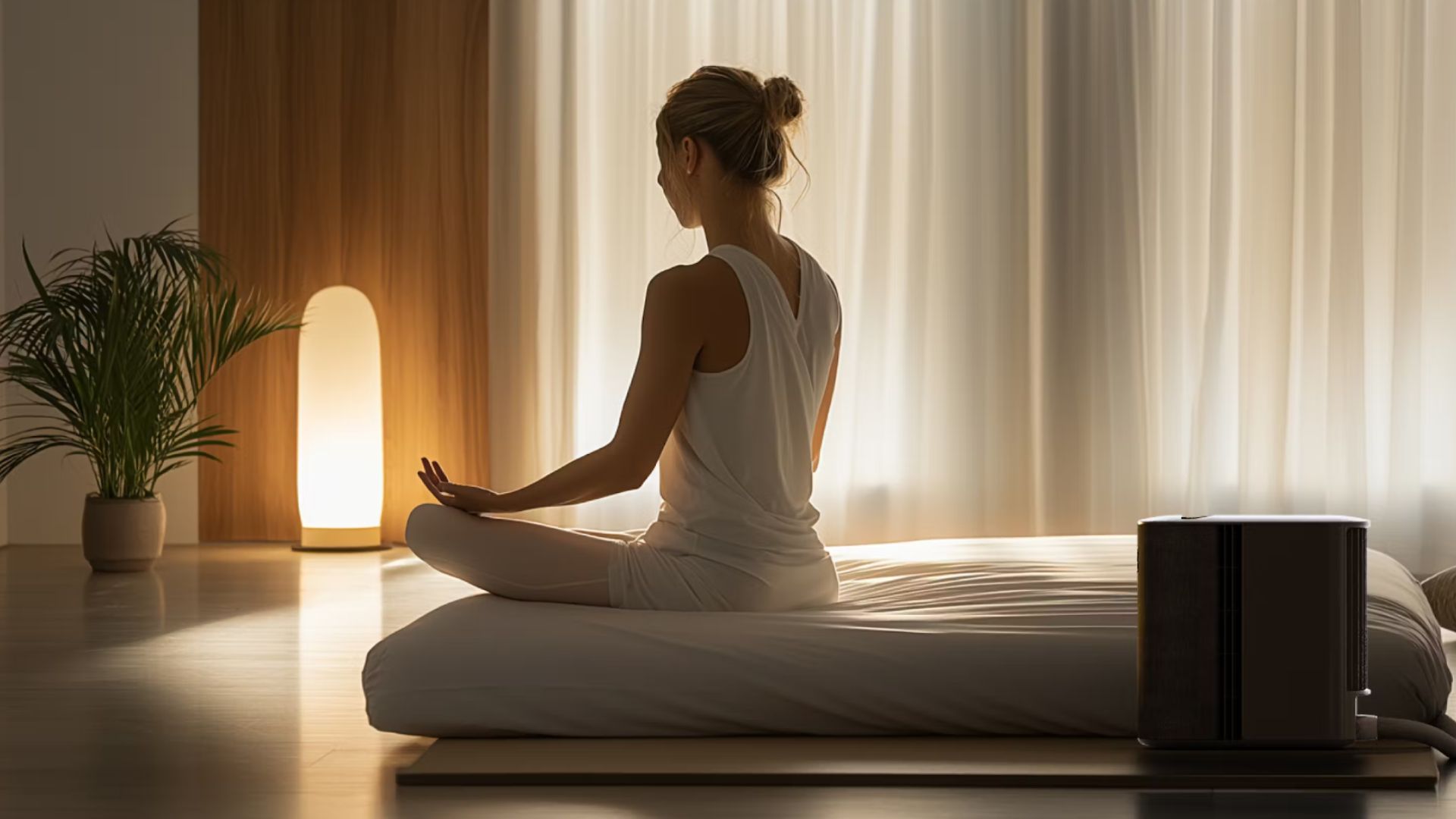
We know that quality sleep is a bedrock of happiness and health, and Benedict credits the principle of lagom (the Swedish word for balance and moderation in all aspects of life) for the country's sleep quality. He says that there's "a widespread awareness among Swedes of the importance of maintaining a healthy work-life balance" which helps people manage "daily pressures and enjoy a better night’s sleep."
Stress and anxiety are two major disruptors of quality ZZZs. One way of creating balance in your life, and your sleep environment, is to establish a calming nighttime routine. This will help your mind to switch off and your body to wind down, leading to a better chance of getting the restorative sleep you need.
5. Use a sauna
Although saunas originated in Sweden's neighbouring country, Finland, they are a big part of Swedish culture and history too. This practice of sweat bathing and rapid cooling can work wonders on your sleep, so its no wonder its Swedish- approved.
Benedict explains: "Not only do saunas provide a break from daily stresses, but the heat warms the surface of the body. When used properly before bedtime, this can help you fall asleep, as the body naturally cools down afterwards." This natural cooling process signals to your brain that it's time to sleep, helping to promote a restful night’s slumber.
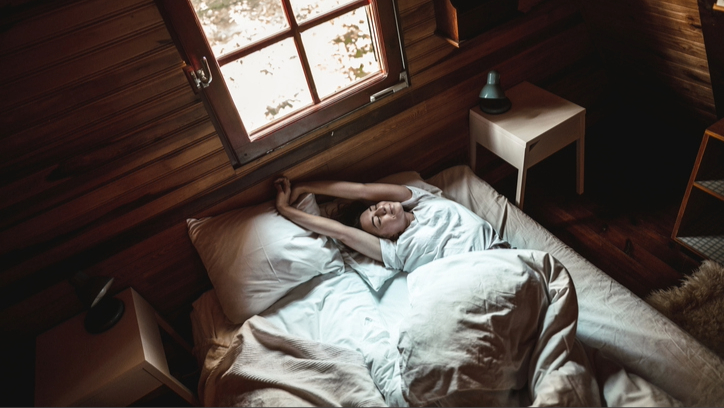
How does your environment impact your sleep?
Unsurprisingly, the set up of the space you sleep in can heavily influence the quality of the rest you get. A great first step is ensuring you have the best mattress and best pillow for your body type and sleep style, since both will give you the support and pressure relief you need to sleep well.
But your environment (inside and outside the home) has an impact on how well you sleep, too. Light pollution, noise levels and air quality, especially in busy cities, can disrupt your circadian rhythm. If you find this is the case, it's worth considering accessories such as black out curtains, an eye mask, sleep earplugs (we especially love the Loop Quiet 2 Earplugs) or an air purifier.
Your social environment also plays a role. Benedict explains: "Feeling stressed by work, relationships, family issues, and the many crises around the world can make it hard for people to get a good night’s sleep." This reinforces the importance of stress management and general wellbeing in getting good sleep, which the Swedes seem to have mastered, if their prioritization of lagom and the World Happiness Report findings are anything to go by.

Eve is a PPA-accredited journalist with an MA in Magazine Journalism from Cardiff University. She is a Sleep Staff Writer at Tom’s Guide and has four years’ experience writing health features and news. She is particularly interested in the relationship between good sleep and overall health. At Tom’s Guide Eve is responsible for coverage and reviews of sleep tech and is our smart and cooling mattress specialist, focussing on brands such as Eight Sleep and Sleep Number. She also covers general mattress reviews, seeks out the best deals to produce tried-and-tested buyer's guides for sleep accessories and enjoys writing in-depth features about sleep health. She has been involved in rigorous testing procedures for mattress reviews in our Sleep Studio and has interviewed experts including sleep doctors and psychologists. When not covering sleep at Tom's Guide, Eve enjoys writing about health and fitness, food and culture.
